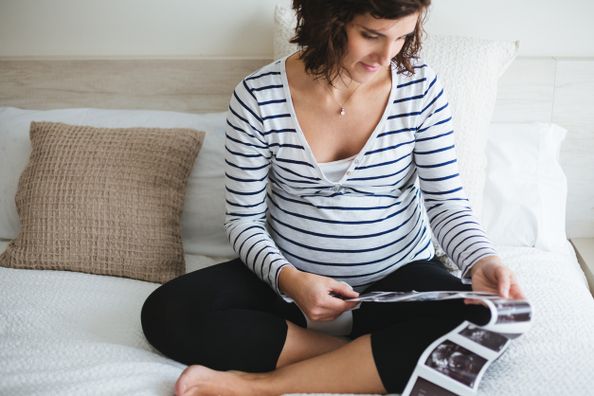As an eager mom-to-be, you probably have many questions about the bundle of joy that is growing inside you. By your 20-week ultrasound, you are about halfway through your pregnancy and your baby bump is showing. Many people may be asking you if you think you are having a boy or girl, but your 20-week ultrasound has much more importance than just showing you a sneak peak of your baby. The main purpose of the 20-week pregnancy ultrasound is to ensure that your baby is developing normally, not to reveal the gender of your baby.
The 20-week pregnancy ultrasound is a screening exam that evaluates your baby’s growth, development and determines how your pregnancy is progressing through the use of sound waves. The echo from the sound waves bounce off your baby which translates into video images. Pregnancy ultrasound is complex because there are many structures in your developing baby that need to be evaluated, documented and measured. This test is commonly performed when you are between 20 and 22 weeks.
Prior to Your Exam
Depending on your obstetrics practice, some 20-week ultrasounds are performed in-office while others will be referred to a radiology department. Either way, the person performing your exam is well-trained and specializes in ultrasounds.
On the day of your exam, you will be asked to drink a specific amount of water one hour before your appointment time. Try to go to the bathroom first and then drink your fluids. You are supposed to drink the water early enough before your ultrasound so that it has time to fill your bladder, but not so much that you are trying to “hold it” while in the waiting room. Above all, the less air that is in your bladder, the clearer the images of your baby will generally be.
During Your Appointment
At DMG, we ask that only one adult accompany you during the technical portion of the ultrasound examination. The technologist or physician will be concentrating during the exam and may be quiet. Don’t worry, they are doing their job and need to ensure that they get images and measurements of certain structures of the baby.
Upon completion of the technical portion, an additional family member or two will be invited into the room to see live imaging of your baby. To help ensure quality and safety, children will need to remain with additional family member/s in the waiting room until this portion of the ultrasound is complete. A pregnancy ultrasound generally takes about 30 minutes.
What is Looked at During an Ultrasound
The technologist/physician will show you your baby during your ultrasound as well as take a lot of different images and measurements including:
- Shape and structure of your baby’s head
- Face to check for a cleft lip
- Spine at length and cross section to make sure bones align and the skin covers the spine at the back
- Abdominal wall, to make sure it covers all the internal organs
- Depending on the baby’s position and gestational age, the technologist will do their best to determine the gender of your baby, if desired. Please keep in mind that ultrasound is not 100% accurate in fetal sex determination.
At DuPage Medical Group, you will be provided with a CD of images from your ultrasound upon completion of the exam (offices do not provide CD). Under HIPAA guidelines: video, cameras and cell phones are not allowed inside the exam room with the intention of documenting or recording the exam.
If the technologist/physician sees a particular issue, or if the baby’s growth is falling outside the predicted range, additional testing may be recommended. Don’t panic. Many times a follow-up test shows that any suspicious findings are no cause for concern. In the unlikely event that there is a health problem, your ultrasound results can help your physician determine the best care plan for you and your baby.
For most parents, the 20-week pregnancy ultrasound is a very happy experience and the best tool for your physician to determine how your baby is progressing.
Health Topics:







